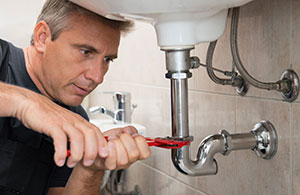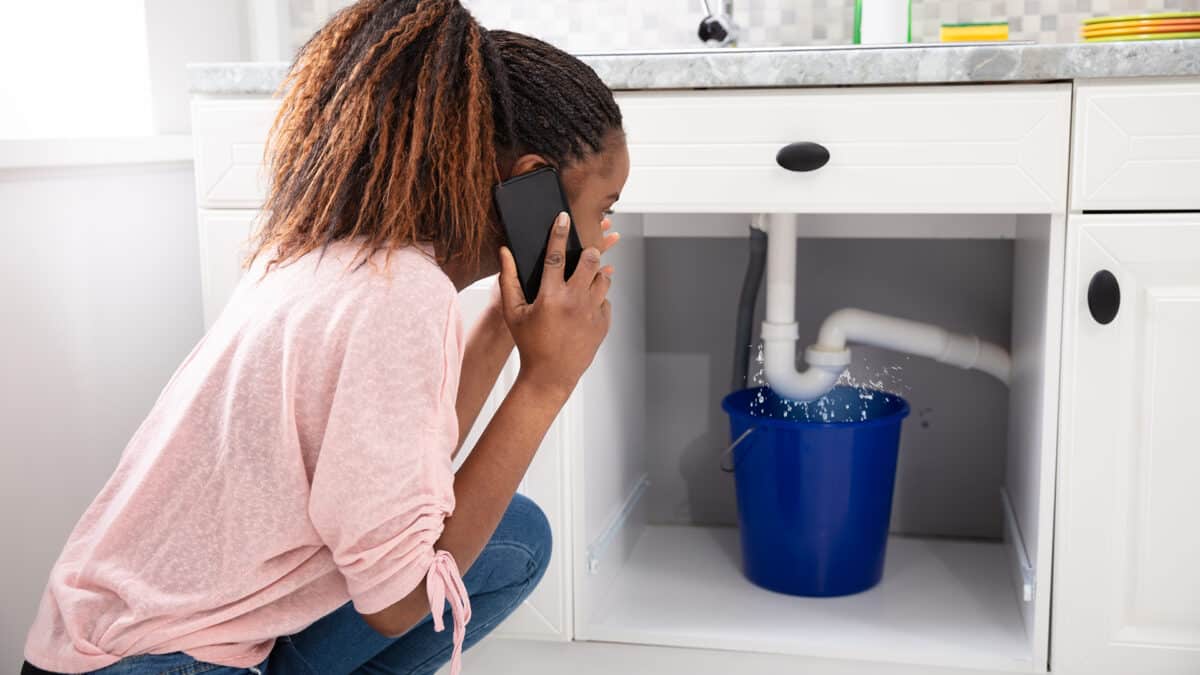Immediate Solutions for Pipe Problems: Steps to Take Until A Plumber Arrives
Immediate Solutions for Pipe Problems: Steps to Take Until A Plumber Arrives
Blog Article
Have you been interested in content about What to Do While Waiting for an Emergency Plumber?

Plumbing emergencies can strike at any moment, triggering anxiety and prospective damage to your home. Whether it's a burst pipe, a stopped up drainpipe, or a dripping faucet, knowing how to handle the circumstance till a specialist plumbing shows up can save you from more difficulties. This post supplies necessary emergency situation plumbing suggestions to help you mitigate damage and reclaim control throughout a pipes dilemma.
Turn Off the Water Supply
The first step in any kind of pipes emergency is to shut off the water. For local problems, such as a leaking tap or bathroom, shut off the valve near the component. When it comes to a major leak or burst pipe, situate your home's primary water shut-off valve and transform it off promptly. Understanding the location of these shutoffs in advance can save beneficial time during an emergency situation.
Turn off Your Water Heater
In particular emergencies, such as a burst pipeline, it's a good idea to shut down your hot water heater. This avoids overheating or damage to the device when water quits streaming. Switch off the power supply to the hot water heater (electric or gas) and allow it cool down to prevent possible risks.
Briefly Quit a Burst Pipe
A ruptured pipe can bring about considerable water damages in minutes. To minimize the problem:
Call a professional plumbing professional promptly to address the trouble permanently.
Have an Emergency Situation Plumbing Kit
Prepare a fundamental plumbing emergency situation kit to take care of minor concerns efficiently. Your kit needs to include:
Having these devices on hand can make a considerable difference in your capability to take care of emergencies.
Unclog Drains Securely.
A clogged up drain can be a discouraging and unpleasant issue. Here's how to tackle it:.
If these methods don't work, avoid utilizing extreme pressure, as it might aggravate the clog.
Take Care Of Overflowing Toilets.
An overruning commode can create prompt chaos. Here's what you ought to do:.
Address Tiny Leaks with Short-term Solutions.
Tiny leakages can swiftly end up being significant problems if left uncontrolled. Utilize these short-term solutions up until professional assistance arrives:.
While these repairs aren't irreversible, they can help reduce water loss and damage.
Manage Frozen Piping Carefully.
In colder climates, frozen pipelines are a typical emergency situation. If you believe an icy pipeline:.
Know When to Call a Specialist.
While quick fixes can aid momentarily, particular pipes concerns need instant expert attention. Call a plumbing if:.
Immediately getting in touch with a specialist makes certain the problem is dealt with correctly and protects against further difficulties.
Stop Further Damages.
Taking fast action to decrease damage can save you money and time in the long run. Below's exactly how:.
Final thought.
Plumbing emergencies can be frustrating, however with the best understanding and tools, you can take care of the circumstance efficiently up until help arrives. By switching off the water supply, resolving little leaks, and using momentary fixes, you can decrease damage and keep your home safe. Keep in mind, these tips are short-lived solutions; constantly consult a qualified plumbing professional to deal with the root cause of the trouble. Preparation and fast reasoning are your best allies in any kind of plumbing emergency situation.
Expert Tips for Emergency Plumbing Repairs
Plumbing emergencies can be incredibly stressful and inconvenient. Whether it’s a burst pipe, a clogged drain, or a leaky faucet, these common plumbing emergencies need immediate attention to prevent further damage to your home. But before you panic, it’s important to understand the basics of plumbing repairs and the steps you can take to address these emergencies. In this article, we will share some expert tips to help you navigate through these situations and minimize potential water damage.
Identifying Common Plumbing Emergencies
Leaky pipes and faucets Clogged drains and toilets Burst pipes Low water pressure Water heater problems Essential Tools for Plumbing Repairs
Plunger: Useful for unclogging toilets and drains Adjustable wrench: Needed for tightening or loosening nuts and bolts Pipe wrench: Ideal for gripping and turning pipes Tape measure: Necessary for accurate pipe measurements Plumber’s tape: Helps create watertight seals Understanding Emergency Plumbing Services
Emergency plumbing services are designed to provide immediate assistance for unexpected plumbing issues that can cause significant damage to your home, business, or health. These services are typically available 24/7 and are staffed by experienced plumbers who can quickly diagnose and repair a wide range of plumbing problems.
When a plumbing emergency strikes, time is of the essence. Whether it’s a burst pipe flooding your basement or a gas leak posing a serious risk, emergency plumbing services ensure that help is just a phone call away. These professionals are equipped with the tools and expertise to handle any situation, minimizing damage and restoring your plumbing system to proper working order.
What Constitutes a Plumbing Emergency?
Burst pipes or water supply lines: These can cause extensive water damage and need immediate repair to prevent flooding. Gas leaks or suspected gas leaks: Gas leaks are extremely dangerous and require prompt attention to avoid potential explosions or health hazards. Sewer backups or overflows: These can lead to unsanitary conditions and significant property damage. Clogged drains or toilets causing water to overflow: Overflowing water can damage floors, walls, and other structures. Leaks or water damage causing structural damage: Persistent leaks can weaken the structural integrity of your home or business. No hot water or heating: A lack of hot water can be more than an inconvenience, especially in colder months. Common Causes of Plumbing Emergencies
Aging or corroded pipes: Over time, pipes can deteriorate, leading to leaks or bursts. Improperly installed or maintained plumbing fixtures: Faulty installations or lack of maintenance can result in unexpected failures. Tree roots or other debris infiltrating your sewer line: Roots can grow into pipes, causing blockages and backups. Frozen pipes or water supply lines: In colder climates, pipes can freeze and burst, leading to significant water damage. High water pressure or sudden changes in water pressure: Excessive pressure can strain pipes and fixtures, causing them to fail. Natural disasters such as floods or earthquakes: These events can disrupt your plumbing system and cause severe damage. Steps to Minimize Water Damage
Locate the water shut-off valve: Knowing where the valve is can help you quickly cut off the water supply to the affected area. Turn off the water heater: If there’s a risk of water coming into contact with the heating element, make sure to turn off the water heater to avoid potential accidents. Open faucets and drain pipes: By opening faucets and drain pipes, you can relieve pressure and empty any standing water. Collect and contain water: Use towels, buckets, or bins to collect water and prevent it from spreading to other areas of your home. https://leecountyplumbingandwellservice.com/expert-tips-for-emergency-plumbing-repairs/

We hope you enjoyed reading our excerpt on Expert Tips for Managing a Plumbing Emergency Until Help Arrives. Thank you so much for finding the time to read through our piece. So long as you enjoyed our blog post please do not forget to pass it around. Thanks for being here. Please come visit our website back soon.
Click Here Report this page